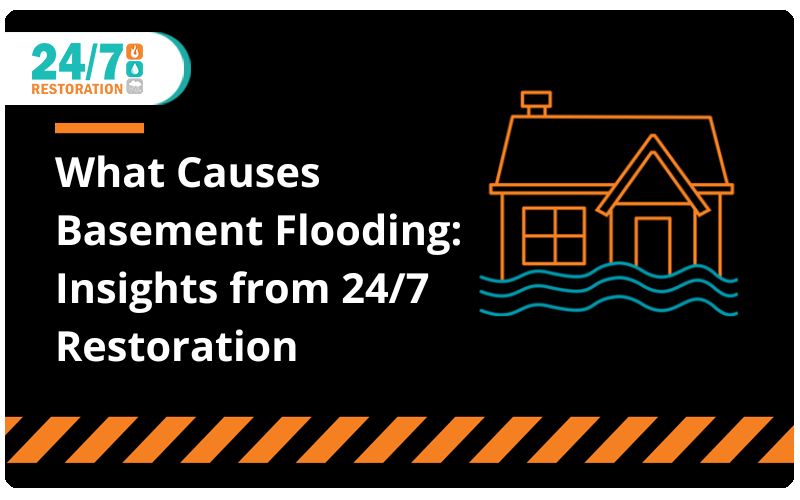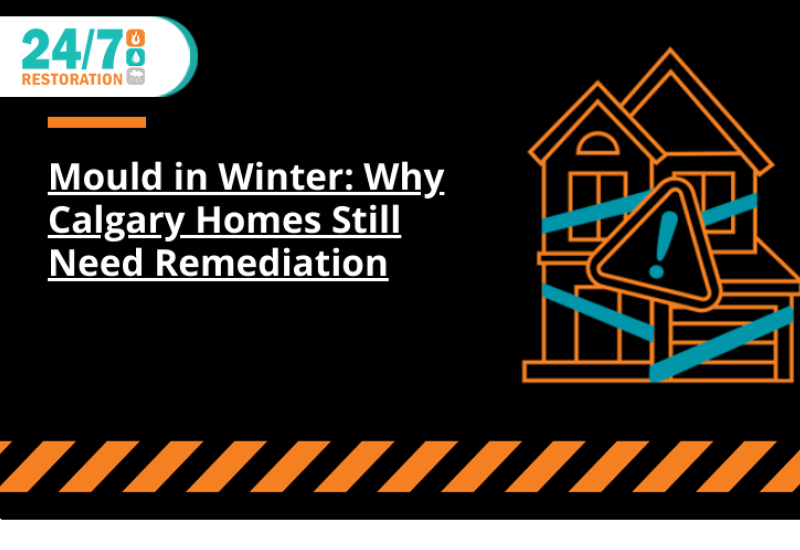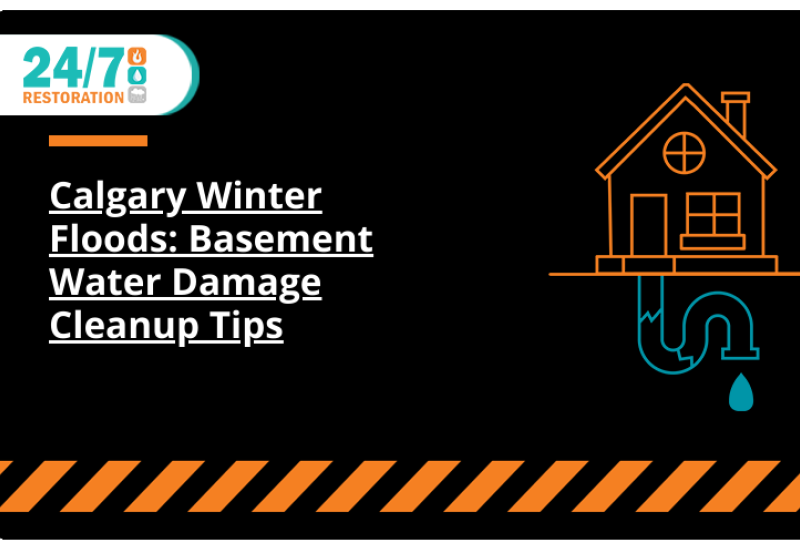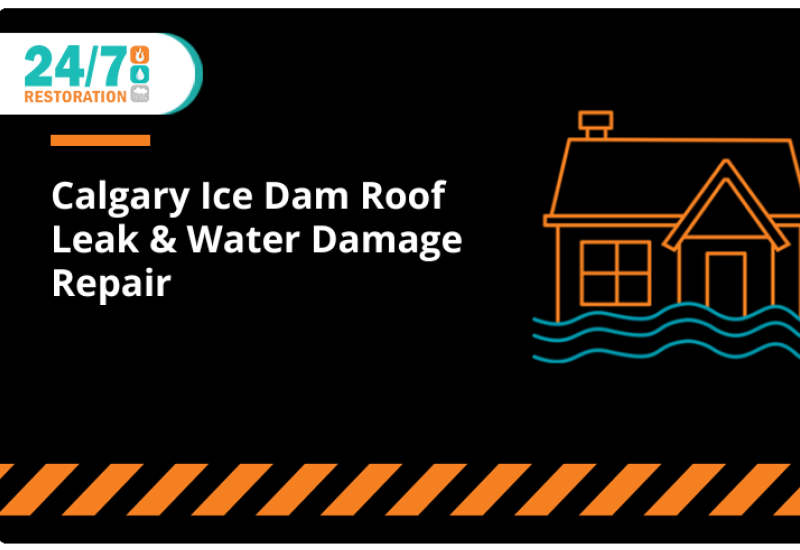Basements, the foundations of our homes, are more than just storage spaces or recreational areas; they are an integral part of our living environment. However, they are also the most prone to flooding, a problem that can cause significant damage and distress. At 24/7 Restoration, we understand the challenges and frustrations that come with basement flooding. Through years of expertise and dedicated service, we aim to shed light on the causes and offer solutions to protect your home and peace of mind.
Basement flooding can stem from various sources, both external and internal, making it a multifaceted issue. Understanding these causes is the first step toward prevention and protection.
Extreme Weather and Climate Change
One of the most common culprits of basement flooding is heavy rainfall. As climate patterns shift globally, we are witnessing more frequent and intense rainstorms that can overwhelm city drainage systems and lead to water seeping into basements. Melting snow and ice during the spring thaw further exacerbate this problem, especially in areas where rapid temperature changes are common.
Poor Drainage and Landscape Grading
The way your property is landscaped can significantly impact your basement’s vulnerability to flooding. Ideally, your home should be situated so that the ground slopes away, allowing rainwater to drain naturally. However, if the grading is poor or if gutters and downspouts are improperly installed or maintained, water can pool around your foundation. Over time, this can breach waterproofing measures and enter your basement.
Plumbing Failures and Infrastructure Deterioration
Internal factors such as plumbing leaks, burst pipes, and faulty sump pumps are also major contributors to basement flooding. Over time, the infrastructure of a home can deteriorate, leading to vulnerabilities in the water management system. Regular maintenance is crucial to identify and address these issues before they escalate.
Navigating the Waters
At 24/7 Restoration, we believe in proactive measures to safeguard your home against basement flooding. Here are practical steps homeowners can take:
- Regular Maintenance: Keep gutters clean and ensure downspouts extend away from your home’s foundation. Regularly inspect and maintain your plumbing system and sump pump to ensure they are functioning correctly.
- Landscape and Exterior Modifications: Consider regrading your property if necessary. Installing a French drain system or waterproofing the exterior walls of your basement can also offer additional protection.
- Stay Informed: Pay attention to weather forecasts, especially during seasons prone to heavy rainfall or rapid snowmelt. Taking preemptive actions, such as ensuring your sump pump is operational and valuables are elevated, can mitigate potential damage.
Basement flooding is a complex issue influenced by a variety of factors. At 24/7 Restoration, we’re committed to providing our clients with the knowledge and services needed to protect their homes from the devastating effects of water damage. Homeowners can significantly reduce the risk of basement flooding by understanding the causes and taking appropriate preventative measures. Remember, preparation is key, and we are here to help, 24/7, ensuring your home remains dry, safe, and secure.
Written on behalf of 24/7 Restoration.
FAQs
Q: What are the main causes of basement flooding?
A: Basement flooding can result from several factors including extreme weather events like heavy rain or snowmelt, poor drainage around the home's foundation, and plumbing failures such as burst pipes or sewer back-ups.
Q: How can I prevent my basement from flooding?
A: To prevent basement flooding, ensure proper drainage around your home, regularly clean gutters and downspouts, install a sump pump with a battery backup, and consider regrading the land around your house to direct water away from the foundation.
Q: What should I do immediately if my basement floods?
A: If your basement floods, prioritize safety by turning off electricity and gas to the area. Then, contact a professional restoration company like 24/7 Restoration to safely remove the water, dry the area, and begin the recovery process.




